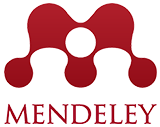Analysis of Elementary School Students’ Science Literacy in Learning Natural and Social Sciences (IPAS)
Abstract
Keywords
Full Text:
PDFReferences
Angelia, Y., Supeno, S., & Suparti, S. (2022). Keterampilan proses sains siswa sekolah dasar dalam pembelajaran ipa menggunakan model pembelajaran inkuiri. Jurnal Basicedu, 6(5), 8296-8303.
Aprilia, P. W., Suryanti, S., & Suprapto, N. (2021). Pembelajaran inkuiri untuk melatih literasi sains siswa pendidikan dasar. Jurnal MUDARRISUNA: Media Kajian Pendidikan Agama Islam, 11(2), 250-268.
Ayurachmawati, P., & Widodo, A. (2016). Analisis kemampuan inkuiri siswa di sekolah dasar. EduHumaniora| Jurnal Pendidikan Dasar Kampus Cibiru, 8(2), 217-227.
Babchuk, W. A. (2017). Book review: Qualitative research: A guide to design and implementation, by SB Merriam and EJ Tisdell.
Bowen, G. A. (2009). Document analysis as a qualitative research method. Qualitative research journal, 9(2), 27-40.
Bybee, R. W. (2010). Advancing STEM Education: A 2020 Vision. Technology and Engineering Teacher, 70(1), 30-35.
Creswell, J. W., & Creswell, J. D. (2017). Research design: Qualitative, quantitative, and mixed methods approaches. Sage publications.
DeBoer, G. E. (2000). Scientific literacy: Another look at its historical and contemporary meanings and its relationship to science education reform. Journal of Research in Science Teaching, 37(6), 582-601.
Demir, C. G. (2020). An overview of project-based learning practices within the context of 21st century skills. Paradigm Shifts in 21st Century Teaching and Learning, 36-52.
Dewi, N. L., & Prasetyowati, D. (2023). Analisis Hasil Asesmen Diagnostik Pada Mata Pelajaran Ilmu Pengetahuan Alam Dan Sosial Kelas IV Sekolah Dasar. Didaktik: Jurnal Ilmiah PGSD STKIP Subang, 9(2), 4979-4994.
Glynn, S. M., Brickman, P., Armstrong, N., & Taasoobshirazi, G. (2009). Science motivation questionnaire: Construct validation with nonscience majors. Journal of Research in Science Teaching, 44(8), 1088-1107.
Harlen, W. (Ed.). (2010). Principles and big ideas of science education. Association for science education.
İdil, Ş., Gülen, S., & Dönmez, İ. (2024). What Should We Understand from PISA 2022 Results?. Journal of STEAM Education, 7(1), 1-9.
Kolb, D. A., Boyatzis, R. E., & Mainemelis, C. (2014). Experiential learning theory: Previous research and new directions. In Perspectives on thinking, learning, and cognitive styles (pp. 227-247). Routledge.
Kvale, S. (2009). Interviews: Learning the craft of qualitative research interviewing. Sage.
Latif, A., Pahru, S., & Muzakkar, A. (2022). Studi Kritis Tentang Literasi Sains dan Problematikanya di Sekolah Dasar. Jurnal Basicedu, 6(6), 9878-9886.
Laugksch, R. C. (2000). Scientific literacy: A conceptual overview. Science Education, 84(1), 71-94.
Millar, R., & Osborne, J. (2000). Beyond 2000: Science Education for the Future. King's College London, School of Education.
Miles, M. B., Huberman, A. M., & Saldaña, J. (2014). Qualitative data analysis: A methods sourcebook. 3rd.
Miles, M. B. (1994). Qualitative data analysis: An expanded sourcebook. Thousand Oaks.
National Research Council. (2012). A Framework for K-12 Science Education: Practices, Crosscutting Concepts, and Core Ideas. Washington, DC: The National Academies Press.
Nbina, J., & Obomanu, B. J. (2010). The meaning of scientific literacy: A model of relevance in science education. Academic Leadership: The Online Journal, 8(4), 70.
Neutzling, M., Pratt, E., & Parker, M. (2019). Perceptions of learning to teach in a constructivist environment. Physical Educator, 76(3), 756-776.
Nurhanifah, A., & Utami, R. D. (2023). Analisis Peran Guru dalam Pembudayaan Literasi Sains pada Siswa Kelas 4 Sekolah Dasar. Jurnal Elementaria Edukasia, 6(2), 463-479.
Obe, W. H. (2018). The teaching of science in primary schools. David Fulton Publishers.
Organisation for Economic Co-operation and Development. (2023). PISA 2022 Assessment and Analytical Framework. OECD Publishing.
Perry, S. B. (2020). Project-based learning. The students’ guide to learning design and research. EdTech Books. Retrieved from https://edtechbooks. org/studentguide/project-based_learning.
Programme international pour le suivi des acquis des élèves. (2017). PISA 2015 Results: Excellence and Equity in Education. OECD Publishing.
Putri, A. F., Naila, I., & Afani, K. D. A. (2023). Pengembangan media Google Sites berbasis ethno sains pada mata pelajaran IPAS sekolah dasar. SAP (Susunan Artikel Pendidikan), 7(3), 433-442.
Rahma, S. R., Faradita, M. N., & Afiani, K. D. A. A. A. (2024). Penerapan Metode Proyek untuk Meningkatkan Keterampilan Proses IPAS Sekolah Dasar kelas V pada Kurikulum Merdeka: Penerapan Metode Proyek untuk Meningkatkan Keterampilan Proses IPAS Sekolah Dasar. Jurnal Perseda: Jurnal Pendidikan Guru Sekolah Dasar, 7(3), 231-241.
Ramadhan, W. (2023). Pembelajaran Berbasis Pendekatan Steam Melalui Project-Based Learning (Pjbl) Untuk Meningkatkan Literasi Sains Siswa Sekolah Dasar. Jurnal Ibriez: Jurnal Kependidikan Dasar Islam Berbasis Sains, 8(2), 171-186.
Roberts, D. A. (2000). Achieving scientific literacy: From purposes to practices.
Rocard, M., Csermely, P., Jorde, D., Lenzen, D., Walberg-Henrikson, H., & Hemmo, V. 6.9 Pri-Sci-Net–An FP7 EU funded Project Promoting Inquiry-based Learning in Science at Primary Level of Education. PROFILES, 86(1), 296.
Sergiovanni, T. J. (2015). Strengthening the heartbeat: Leading and learning together in schools. John Wiley & Sons.
Shwartz, Y., Ben-Zvi, R., & Hofstein, A. (2006). The Use of Scientific Literacy Taxonomy for Assessing the Development of Chemical Literacy Among High-School Students. Chemistry Education Research and Practice, 7(4), 203-225.
Suparya, I. K., Suastra, I. W., & Arnyana, I. B. P. (2022). Rendahnya literasi sains: faktor penyebab dan alternatif solusinya. Jurnal Ilmiah Pendidikan Citra Bakti, 9(1), 153-166.
Thuneberg, H., Salmi, H., Vainikainen, M. P., Hienonen, N., & Hautamäki, J. (2022). New curriculum towards Big ideas in science education. Teachers and Teaching, 28(4), 440-460.
Tytler, R. (2007). Re-imagining science education: Engaging students in science for Australia's future. Teaching Science, 53(4), 14-17.
Widoretno, S. (2022, September). Tantangan Menggunakan Literasi Sain dalam Pembelajaran. In SEMBIO: Prosiding Seminar Nasional Biologi dan Pendidikan Biologi (Vol. 1, No. 1, pp. 104-111).
Yuenyong, C., & Narjaikaew, P. (2009). Scientific literacy and Thailand science education. International Journal of Environmental and Science Education, 4(3), 335-349.
Refbacks
- There are currently no refbacks.
Copyright (c) 2025 Siti Hartina; Meirza Nanda Faradita; Kunti Dian Ayu Afiani

This work is licensed under a Creative Commons Attribution-ShareAlike 4.0 International License.












